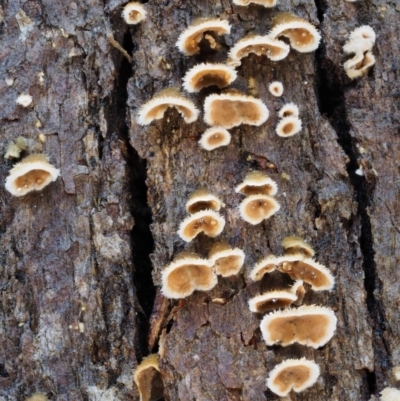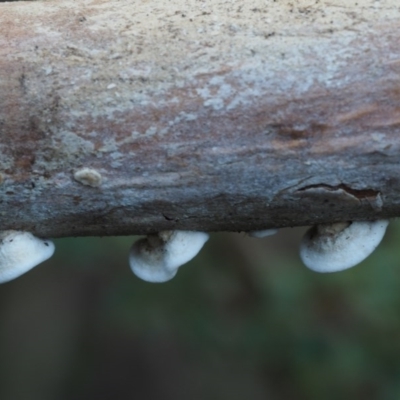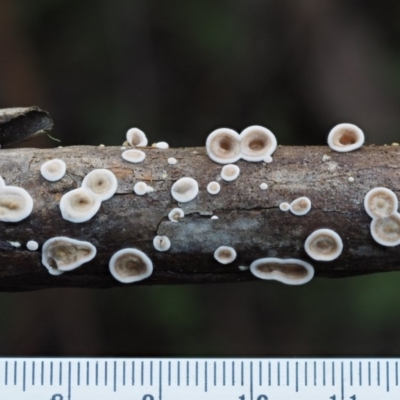Stereum sp.
Species of Stereum produce leathery fruit bodies on dead wood. These may be almost wholly plate-like growths (albeit possibly wavy or curved) away from the wood but may also start off sheet-like, flush on the wood, with a part turning out and growing away from the wood. Technically that composite growth form is described as effused-reflexed (effused: the sheet-like bit; reflexed: the turned-out bit). Effused areas may be quite small or cover many square centimetres. Similarly, where an outward growing part is present there is great range in size, extending only a centimetre or so in some species but up to 20 in others. Effused and reflexed sections are usually quite thin, generally no more than a few millimetres thick.
There is much variation in colour of both the lower surface and the upper surface (of any reflexed section: greyish, creamy, yellowish, yellow-brown, brown, orange. The lower surface my have some wrinkling but otherwise is smooth and featureless with no gills, teeth or pores. Often the upper surface is often is concentrically zoned in different shades and usually it is hairy, though the hairs may be very short so as to give only a velvety feel and may be absent from some of those zones. The hairs may trap algae so you may see fruit bodies with green areas and these are algal colonies.
The genus is found in a wide variety of habitats, from wet to dry, and fruit bodies generally appear in groups.
Look-alikes
Trametes fruit bodies have undersides composed of small pores. You may need to check with a hand lens to see if an underside is pored or smooth.
Xylobolus illudens (which has been Stereum illudens) has a dark pinkish-brown to purplish-brown lower surface and Punctularia strigozozonata is similar.
Chondrostereum purpureum is at first strikingly purple, later pale brownish-lilac.
Species of Hymenochaete produce effused or effused-reflexed fruit bodies with smooth, yellow-brown to dark-brown undersides but those surfaces are densely packed with tiny brown bristles. Use a hand lens!
Gallery
Regional distribution
Stereum sp. is listed in the following regions:









